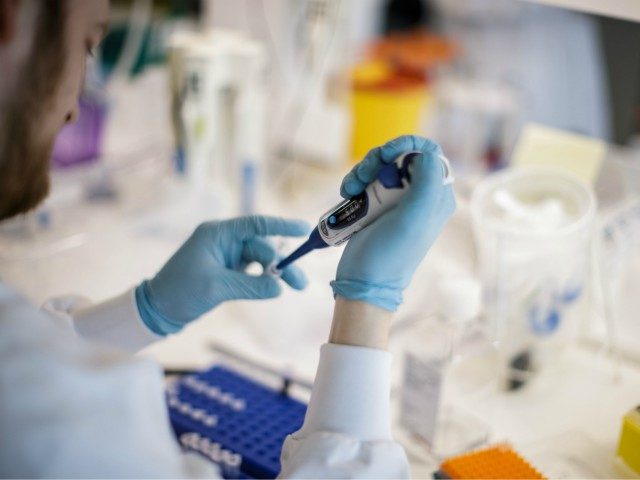A vaccine for the deadly Chinese coronavirus could be at least five months away.
Professor of vaccinology at the University of Oxford Sarah Gilbert has been working seven days a week with her team to develop a vaccine for the new pathogen that came out of China in December.
Hoping to start human trials within the next fortnight, Prof Gilbert is cautious but said she is “80 per cent confident” it would work.
The vaccinologist told The Times in an article published on Saturday: “I think there’s a high chance that it will work based on other things that we have done with this type of vaccine.”
“It’s not just a hunch, and as every week goes by, we have more data to look at… I would go for 80 per cent, that’s my personal view,” Prof Gilbert added.
The Oxford scientist’s revelations come as University of Southampton researchers discovered that coronavirus is not as well-shielded from the immune system as other viruses, making it potentially easier to develop a vaccine against it.
Southampton’s Professor Max Crispin said that the “lower shielding” means that there are “fewer obstacles for the immune system to neutralise the virus with antibodies”, adding it was “a very encouraging message for vaccine development”.
If the Oxford results prove successful, the government has said it will fund vaccines for the public. Producing vaccines for millions of Britons would still take months, however.
Asked if it could be ready by September, Prof Gilbert said it was “just about possible if everything goes perfectly”, but warned: “Nobody can promise it’s going to work.”
While it may seem like a long time to wait for a vaccine — which would be a significant step in ending lockdown measures — Johnson & Johnson told Sky News on March 31st that it could take up to a year to get to the point where they can mass produce millions of doses.
The world’s biggest pharmaceutical company’s chief scientific officer Dr Paul Stoffels told the broadcaster that ordinarily, it would take two years to produce a vaccine. But scientists are racing to develop one against the Chinese virus, which has already claimed the lives of more than 100,000 people and infected 1.7 million worldwide, according to the latest figures from Johns Hopkins University.
Oxford’s Prof Gilbert also said there might be a problem in finding test subjects due to social distancing measures in the UK lowering the transmission rate. Trials may have to take place in other countries with “a high rate of virus transmission” in hopes of “get[ting] our efficacy results very quickly, so that is the strategy for reducing the time”.
Finding a vaccine is key to rolling back the country’s lockdown and social distancing rules. Specialists in the UK have been frank over the possibility the UK may be in and out of lockdown for up to a year. The government announced before the weekend that the strictest measures the country is currently under may not be lifted for some weeks.

COMMENTS
Please let us know if you're having issues with commenting.